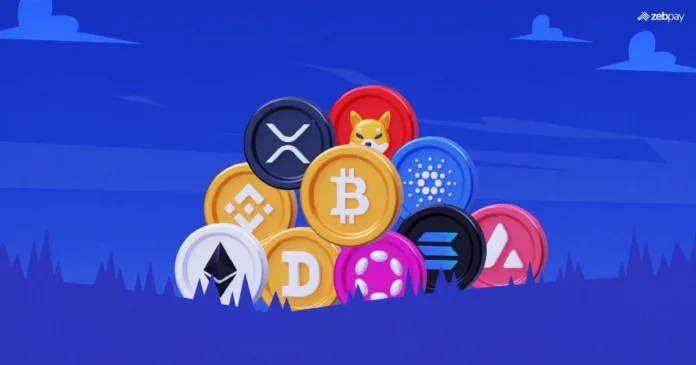
The term blockchain often brings cryptocurrency like Bitcoin or Ethereum to mind. However, in 2025, the landscape of this transformative technology has evolved significantly. Today, blockchain applications beyond cryptocurrency are disrupting major industries—reshaping the way we manage data, security, and transactions.
Let’s explore the top 7 real-world blockchain applications beyond cryptocurrency and how they’re driving innovation across multiple sectors.
1. Blockchain in Supply Chain Management
Blockchain in supply chain management is revolutionizing how goods move globally. Traditionally, the supply chain is fragmented and lacks transparency. But now, blockchain introduces:
Real-time tracking: From manufacturing to delivery, blockchain records every transaction, enhancing traceability.
Fraud prevention: Tamper-proof records reduce counterfeit products.
Inventory optimization: Companies can streamline stock levels and reduce waste.
Walmart and IBM have already deployed blockchain solutions to trace food origins, improving safety and compliance.
2. Blockchain for Healthcare Records
In 2025, patient data security is more critical than ever. Blockchain for healthcare is addressing privacy concerns, data integrity, and accessibility.
Secure health data: Patient records are encrypted and stored immutably.
Patient ownership: Individuals have control over their medical history and who accesses it.
Reduced duplication: Health providers can share verified information seamlessly.
Blockchain enhances not just security but the entire workflow of the medical ecosystem, reducing administrative costs and improving patient care.
3. Decentralized Finance (DeFi) Expansion
One of the most profound blockchain applications is Decentralized Finance (DeFi). It’s rapidly maturing and now offers:
Peer-to-peer lending without intermediaries
Yield farming and staking
Access to financial tools for unbanked populations
In 2025, DeFi is being adopted even by traditional banks for faster and more transparent financial transactions.
4. Smart Contracts Technology in Legal and Business Sectors
Smart contracts are self-executing agreements coded on blockchain. Their use has expanded well beyond digital tokens and is now common in:
Legal automation: Contracts that execute based on predetermined conditions (e.g., releasing payments upon delivery).
Real estate: Automatically transfer ownership once payments clear.
Insurance claims: Trigger payouts instantly based on verified data.
This smart contracts technology reduces human error, speeds up processes, and lowers legal costs.
5. Identity Management and Verification
Identity theft and verification delays are widespread issues. Blockchain addresses this by creating digital identities that are:
Immutable and tamper-proof
User-controlled and consent-based
Instantly verifiable across borders
These identity systems are now being used in online voting, banking, and even at international airports for secure boarding.
6. Blockchain for Intellectual Property Protection
Content creators and inventors can now protect their works using enterprise blockchain solutions. Through timestamped and verifiable entries, blockchain allows:
Proof of ownership
Transparent royalty tracking
Decentralized content distribution
Musicians, writers, and software developers benefit from this to prevent copyright infringements and ensure fair compensation.
7. Environmental and Sustainability Initiatives
Blockchain is helping tackle climate change and promote green technology. Here’s how:
Carbon credit tracking: Governments and corporations can trace and verify carbon offsetting.
Energy trading platforms: Individuals with solar panels can sell excess energy via blockchain-based systems.
Sustainable sourcing: Consumers can verify eco-friendly supply chains before buying.
This application promotes ethical consumerism and transparency in sustainability efforts.
Final Thoughts: A Blockchain-Powered Future
The notion that blockchain is only about cryptocurrency is outdated. In 2025, the technology powers advancements in industries like healthcare, finance, logistics, law, and sustainability.
From smart contracts technology to blockchain in supply chain logistics and enterprise blockchain solutions, this decentralized system is solving real-world challenges and unlocking new opportunities.
As more sectors adopt these innovations, the demand for secure, transparent, and efficient blockchain applications beyond cryptocurrency will only grow.